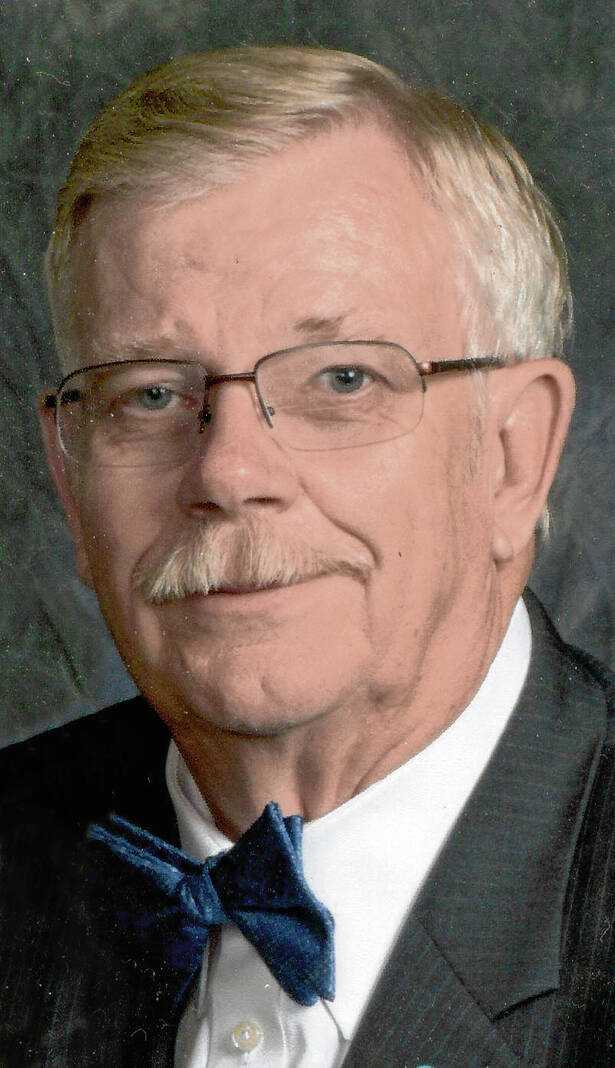
Mark Franke
George Orwell’s dystopian novel “1984” was quite popular during my high school days. My buddies and I viewed it more as parody than as warning. We were introduced to several new terms we flung around lightheartedly, never for a moment considering this fiction could be reality in our future.
One new term, new to us at least, was “Thought Police.” This engaged our adolescent mentalities more than “Newspeak” and “Big Brother” as it was all but impossible to comprehend our world ever coming to that.
How little did we know that all three terms would carry frightening connotations during our retirement years. We have “Newspeak” on steroids these days as some words are totally banned in the public square and others are redefined to something meaningless. It would be interesting to compare English class vocabulary tests of the 1960s to those of today. Same words, different definitions.
We even have the thought police in our lives. That may not be a totally correct descriptive of what is happening. One can still think anything he wants, just so long as he doesn’t actually say it. So perhaps they, whoever they are, ought to be called the speech police.
I was shocked out of my complacency by an op-ed column in the Wall Street Journal about legislation introduced before the Canadian Parliament. The Online Harms Act purports to target so-called online hate speech. That’s problematic in itself; hate speech, like pornography, seems to lie in the eyes of the beholder. There is no moral defense for much of what we read or hear on the Internet, but that is a long way from being the same thing as a criminal act. One shouldn’t go to prison for being a despicable human being. Our overcrowded prisons could not cope.
I, for one, don’t trust any government to decide what I should be allowed to hear and what I need protection from. I am quite capable of hitting the delete button on my computer if I don’t want to read some obnoxious screed.
The real problem with Prime Minister Trudeau’s bill is it goes beyond speech to include thoughts. If this monstrosity becomes law, Canadians will be empowered to file a complaint before a federal judge if they fear that someone will commit an offense under the act. Not has committed an offense, but can reasonably be expected to commit one.
It gets worse. Any fine levied against the offender will go to the accuser. Snitch on your neighbor; get rich quick. Economics 101 teaches that people respond to incentives, and this one will come with flashing neon lights. I don’t doubt the informers will claim altruistic motives in their denunciations but I am equally sure they will cash the checks.
Totalitarian regimes love this ploy. One effective way to keep the masses docile is to encourage them to denounce their family and friends and get rewarded by the government. The East German Stasi were masters at this technique as were the World War II-era dictatorships. Modern day Cuba has such an extensive network of informers Cubans must assume there is at least one on their block. I won’t even guess what it must be like in North Korea.
I doubt Mr. Trudeau is looking to North Korea or Cuba for his model on improving the ethical level of public discourse across Canada but he will accomplish the same thing if this law passes.
For a classical liberal with mild libertarian leanings like me, there is absolutely nothing to like about this bill and much to fear. The cost of living in a land of liberty can be steep at times but it is worth it. One cost that must be avoided is to let the government decide for us which ideas are to be pushed and which are to be suppressed. When a government tries that, it is only theocracy by another name but without God.
We can’t take refuge in the naïve shibboleth, “It can’t happen here.” Our cousins to the north, with whom we share much of our political DNA, are seriously thinking an unthinkable thought. We can only take comfort — not misguided I hope — in the expectation that the Canadian parliament will condemn this bill to the legislative equivalent of Dante’s ninth circle of Hell where it will stay frozen for all time.
“Who will watch the watchmen?” was a famous question asked by the second century Roman poet, Juvenal, one that must be asked every time we find it expedient to give the government more authority. We may think the government will act to our benefit, but what if the next election changes the governing party?
The worm always turns; today’s thought police will be tomorrow’s thought criminals. Count on it.
Mark Franke, an adjunct scholar of the Indiana Policy Review and its book reviewer, is formerly an associate vice chancellor at Indiana University-Purdue University Fort Wayne. Send comments to [email protected].
